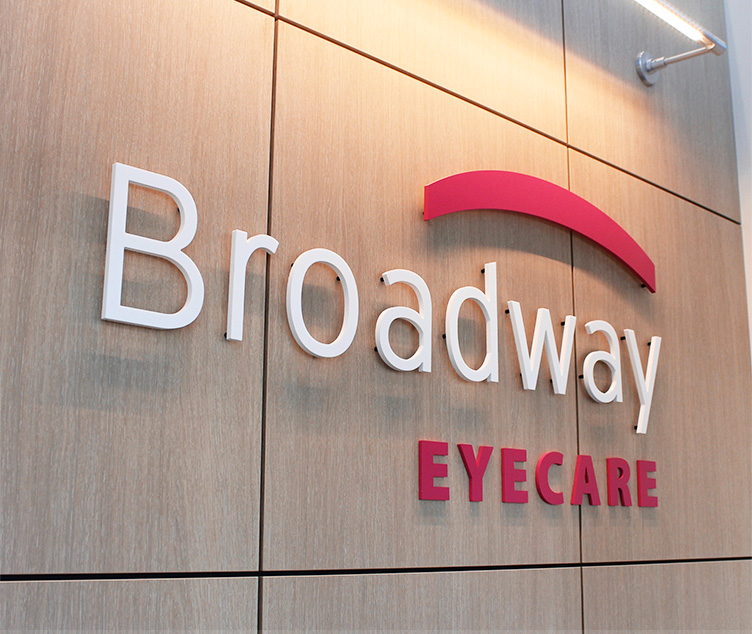Your optometrist is an integral part of taking care of your eye health and vision as you age and providing treatment for a variety of eye diseases. Age-related macular degeneration (AMD) is a condition your optometrist can diagnose and help you manage.
AMD can be diagnosed during a visit to your optometrist for an eye exam. You may also notice sudden signs of wet age-related macular degeneration (AMD) between eye exams. There is no cure for AMD, but your optometrist can help manage the condition to minimize vision loss.
What’s the Role of an Optometrist?
Optometrists go through rigorous training to receive their Doctor of Optometry degree (OD) from an accredited university. They provide primary eye care, similar to how your family doctor or primary care physician provides routine care for your body to maintain good health.
Diagnosing & Treating Eye Conditions
One of the primary services an optometrist typically provides is a comprehensive eye examination. These can be specific for children or adults and seniors, as each age group may have unique eye care needs.
Your eye doctor can assess several aspects of your eye health during a comprehensive eye examination, from visual acuity (how clearly you can see at different distances) to your overall eye health, which can include screening for diseases or conditions like glaucoma, AMD, and cataracts.
What Is Macular Degeneration?
AMD is an age-related condition and the second leading cause of vision loss in Canada. There is no cure for AMD, but catching the condition early can provide a chance to minimize further vision loss.
AMD affects the eye’s macula, which is a part of the retina. As the macula sustains damage, central vision can be affected and gradually impaired, which can make many everyday activities more difficult.
The Importance of Diagnosing AMD Early
The symptoms of AMD are typically gradual, depending on the type, and many people are not aware they have developed AMD until the condition has progressed to an intermediate or late stage and caused vision loss. This is a significant reason why regular eye exams are so important. If we can diagnose AMD in its early stage of development, we can recommend treatments to help slow or stop its progression.
What Are the Different Types of AMD?
There are 2 types of AMD, dry and wet. Usually, but not always, the condition begins as dry AMD and can progress into wet AMD.
Dry AMD
Around 90% of individuals affected by AMD have symptoms caused by dry AMD, also called atrophic AMD. It typically progresses much slower than wet AMD, and symptoms can be minimal—if an individual notices them at all initially.
Researchers have connected the buildup of small white or yellowish deposits called drusen to the development of AMD. Drusen is a waste product consisting of oils, fats, and proteins that build up beneath the macula.
Eventually, this buildup can cause the macula to deteriorate to a point where an individual notices blurriness in their central vision or has trouble seeing in low-light settings. If nothing is done to slow the progression of AMD, complete central vision loss can occur.
Wet AMD
Wet AMD generally affects fewer people, but it can progress very quickly, which can result in severe central vision loss much quicker.
Abnormal blood vessels breaking and leaking are the primary cause of wet AMD. Fluid from abnormal blood vessels can leak behind the retina, causing damage to the macula. A scar may form and can sometimes cover the entire macula. Wet AMD cannot be cured, but anti-VEGF injections and other treatments can be used to preserve the vision of individuals affected by wet AMD.
AMD Management
There is no cure for any type of AMD, but we’re able to provide several treatment and therapy options at Broadway Eyecare.
Lifestyle Recommendations
AMD is a complex disease that has many different risk factors. There are several lifestyle and diet changes that can benefit eye health and help prevent or slow AMD’s progression, including:
- Vitamins C and E and other antioxidants
- Carotenoids like lutein and zeaxanthin
- Omega-3 fatty acids
- Quitting smoking and minimizing alcohol consumption
- Leading an active lifestyle
Eye Injections & Laser Therapy
There are currently no additional treatments for dry AMD, but wet AMD does have treatment options that can help address abnormal blood vessels, including the following:
- Anti–vascular endothelial growth factor (anti-VEGF) can help prevent new abnormal blood vessels from forming.
- Retinal laser photocoagulation, a form of laser surgery, can be used to seal blood vessels and stop them from causing further problems.
Get Routine Eye Exams for Early Detection of AMD
The Canadian Association of Optometrists and our optometrists at Broadway Eyecare in Saskatoon recommend that adults receive a comprehensive eye examination every 1 to 2 years, depending on age and other health factors. We can perform tests to check for many different eye conditions or diseases, including AMD, during your regular eye exams.
Give us a call or book online when it’s time for your next exam. Our professional team is happy to address your eye health concerns and help you maintain clear, healthy vision.










